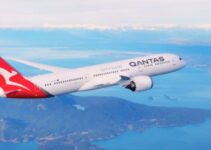The Boeing Company is a missile, telecom equipment, and airplane designing and manufacturing American Multinational Corporation. William E. Boeing founded the aviation company in 1916. Today, we’ll discuss the value chain analysis of Boeing; primary and supporting activities in the process of value chain analysis Example Company. They are inbound and outbound logistics, operations, marketing, and customer service; infrastructure, HRM, technology, and procurement as an application of the value chain analysis process.
Substitutes of Boeing
- United Technologies,
- General Dynamics,
- United Technologies,
- Raytheon,
- Airbus
- GE Aviation.
- Grumman,
- Lockheed Martin,
The Value chain analysis of Boeing would analyze the primary and supporting activities in the process of value chain analysis. They’re inbound and outbound logistics, operations, marketing, and services; infrastructure, HRM, technology, and procurement. Here’s Boeing value chain analysis company example as follows;
Value Chain Analysis of Boeing
Let’s discuss the primary and supporting activities involved in the process of value chain analysis of Boeing. It is an application of value chain analysis based on Porter’s model; some of the key elements and components of value chain analysis are as follows;
Primary Activities of Boeing
Some of the five main primary activities in the value chain analysis of Boeing are as follows;
Inbound Logistics of Boeing
I-Large Supplier Network
According to an estimate, Boeing deals with approximately 11000 suppliers across the globe. The net spending of the company’s procurement from suppliers is roundabout 34 billion USD in 2023. The top 11 suppliers of Boeing that comply with the company’s safety, quality, delivery, and sustainability standards are as follows;
- EPIC Fuels of Irving, Texas
- Harper Engineering Co. of Renton, Wash
- ValStream of Dallas, Texas
- Indigenous Defense & Infrastructure Consortium Pty Ltd of Sydney, Australia
- KF Aerospace of Kelowna, British Columbia, Canada
- CSIRO of Clayton, Victoria, Australia
- Janicki of Sedro-Woolley, Wash.
- Toray Composite Materials America, Inc., of Tacoma, Wash.
- Microsoft of Redmond, Wash
- C.E. Machine Company, Inc., of Wichita, Kan
- Dynamatic Technologies Limited of Bangalore, India
- Killdeer Mountain Manufacturing, Inc. of Dickinson, N.D.
II-Ethical & Responsible Sourcing
Boeing strongly believes in ethical and responsible sourcing through its worldwide supply chain network. The aviation brand carefully analyzes and executes steps to comply with global aviation regulations and standards. In fact, the company collaborates with global suppliers to make sure that they’re complying with the regulatory and human rights laws. The company has set up a conflict mineral compliance program to protect human rights.
III-Principe and Standards for Suppliers
In order to ensure quality suppliers and timely delivery, Boeing has set clear standards and principles for global suppliers to build a better relationship with them and improve their performance. The standards focus on the following areas;
- Sustainable value creation continuously
- Fundamental delivery performance
- Transparent communication
- Value, diversity, and integrity-based relationship
- Paramount, quality, and safety
Outbound Logistics of Boeing
I-Global Distribution Network
Boeing has established a worldwide distribution network that offers roundabout 15 million parts both for Boeing and Non-Boeing aircraft. The distribution hubs and spoke network deliver parts and components from the nearest hub to decrease the transportation cost.
II-E-commerce Platform
In order to simplify a customer shopping experience, Boeing has built an e-commerce that offers 15 airplane parts and components to the airlines. The parts and components portfolio comprises of following;
- Chemical products
- Kits
- OEM parts
- Boeing Manufactured replacement parts
- Standard parts and components
- Used serviceable material
- Boeing proprietary parts
Operations of Boeing
I-Inventory & Warehousing
Boeing’s portfolio comprises roundabout 15 million components and parts, and managing such a huge inventory is highly challenging for the aviation brand. The company employs very advanced and sophisticated demand and inventory planning tools that analyze suppliers’ delivery performance, industry lead time, and consumption.
II- Boeing Everett Factor
Boeing Everett Factory is the world’s largest building that engages in various complex and mega processes and operations for the assembling of the airplane. It comprises thousands of steps and processes that the company needs to perform to assemble millions of parts in the production of the airplane.
Marketing & Sales of Boeing
I-Advertisement
Boeing is the world’s top aerospace brand that develops communication systems, commercial and defense aircraft, and space technology. The aerospace brand runs various types of ads on multiple media channels for the promotion of its brand name and products.
II-Sponsorships
Boeing sponsors various types of events to earn the trust and support of customers and strengthen its brand position in the aerospace industry. It allows the company to connect with the people, customers, stakeholders, and clients at the emotional level and they would always prefer the company’s airlines.
Services of Boeing
I-Repair and Maintenance Services
Electro-mechanical machinery of the airlines needs repairing and maintenance because the parts and components depreciate while working at extreme pressure continuously. Boeing has a team of technical and mechanical experts and access to advanced technology and systems to efficiently handle various types of issues and problems.
Supporting Activities of Boeing
Some of the main supporting activities in the value chain analysis of Boeing are as follows;
Infrastructure of Boeing
Boeing has established a very strong infrastructure in various areas; a worldwide supply chain network; infrastructure of the world’s largest production and assembling facility; warehouse infrastructure, and tech and e-commerce infrastructure to connect with clients worldwide. The strong on-ground infrastructure helps the company
HRM of Boeing
Boeing employed approximately 171,000 employees to manage mass-scale mega-global operations. The human resource management department plays a key role in attracting engineers, and tech experts, creating an innovative workplace environment, and diversity, and conducting training and development programs. In fact, the company strongly believes in equal opportunity for all regardless of gender, race, or any other differences.
Technological Development of Boeing
Boeing invested roundabout 3.377 billion USD in research and development. The aerospace brand has made a strong commitment to innovation in technology, transforming the design and infrastructure, and improving the performance of its products and services.
Procurement of Boeing
Boeing has set clear guidelines, standards, and regulations for ethical and responsible sourcing and purchasing of raw supplies, materials, and equipment. In fact, the company has made it mandatory for its suppliers to comply with human rights laws in order to keep working with the aerospace brand.
Conclusion: Boeing Value Chain Analysis Example Company |Application of Value Chain Analysis Process
After an in-depth study of the value chain analysis of Boeing; we have realized that Boeing is the world’s leading aerospace brand. If you are learning about the Boeing value chain analysis Example Company; then you should keep in mind the abovementioned primary and supporting activities. They’re inbound and outbound logistics; operations, marketing and sales, and services; infrastructure, procurement, HRM, and technological development as an application of the value chain analysis process.
Ahsan is an accomplished researcher and has a deep insight in worldly life affairs. He goes Live 3 days a week on various social media platforms. Other than research writing, he’s a very interesting person.


